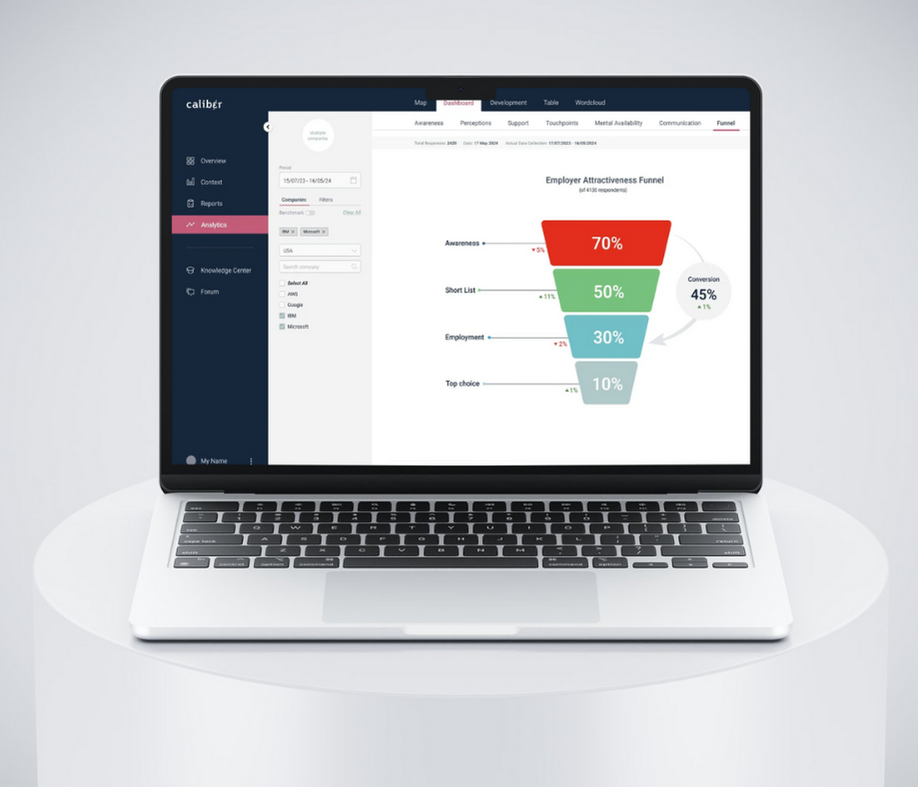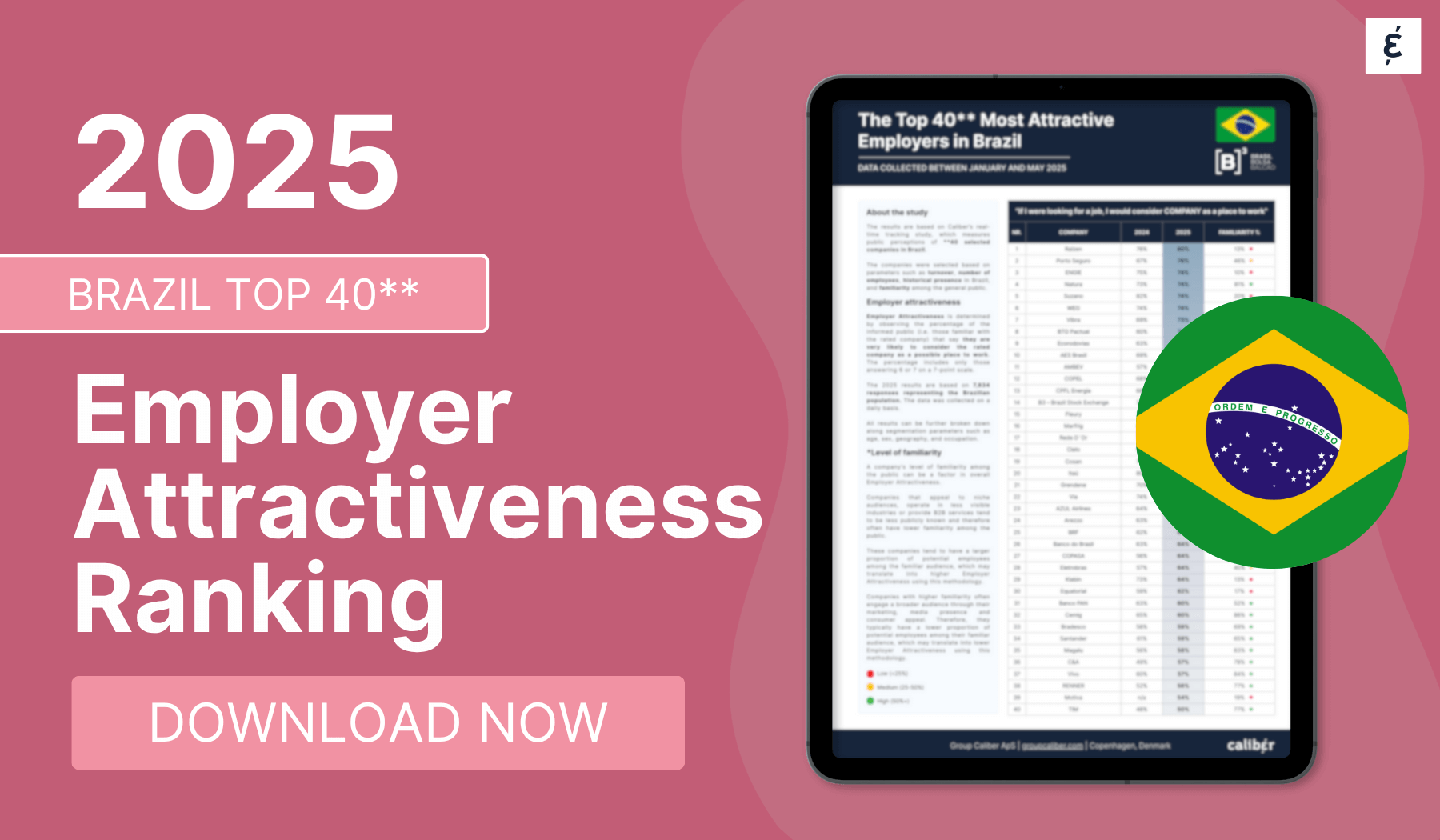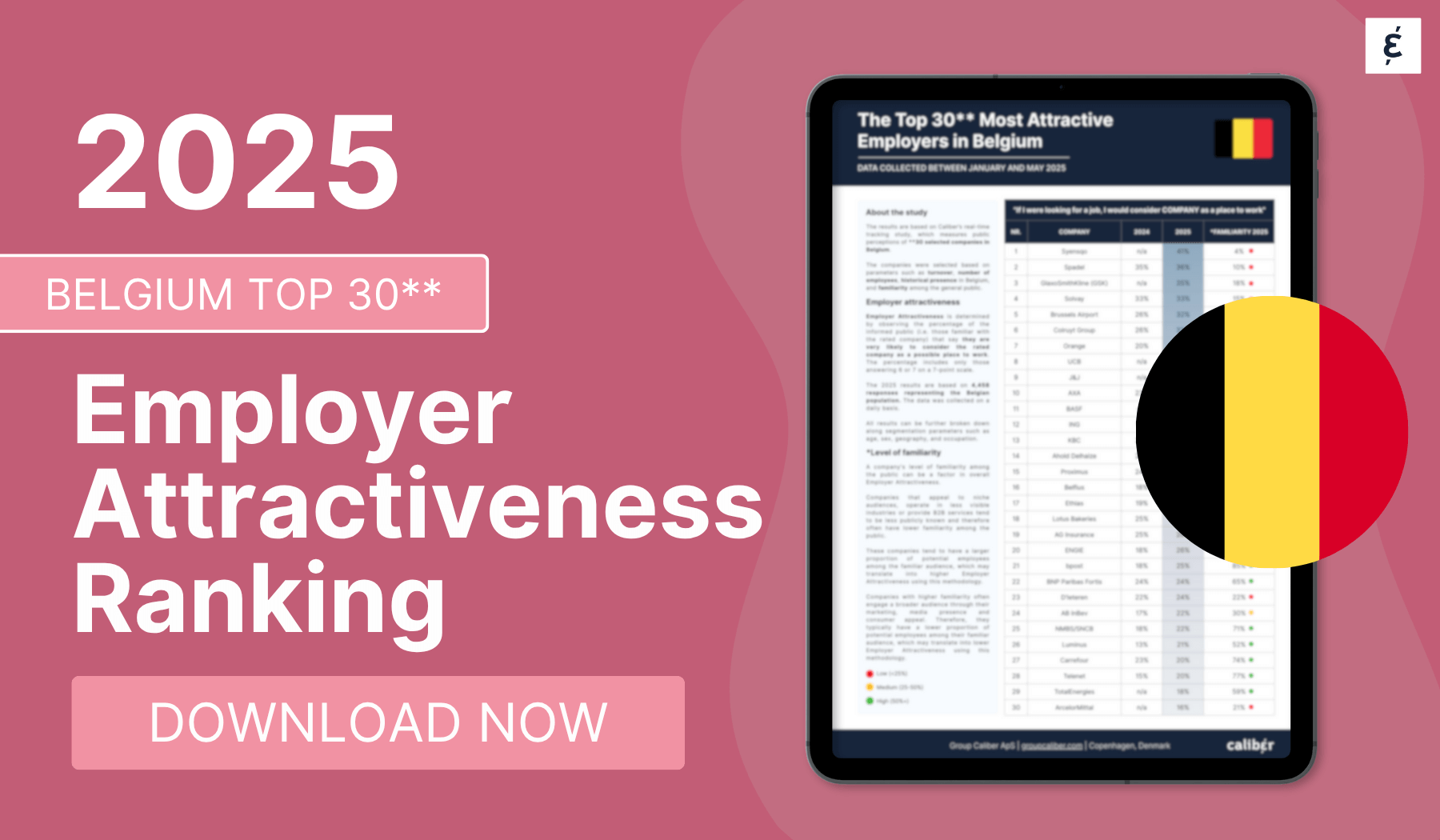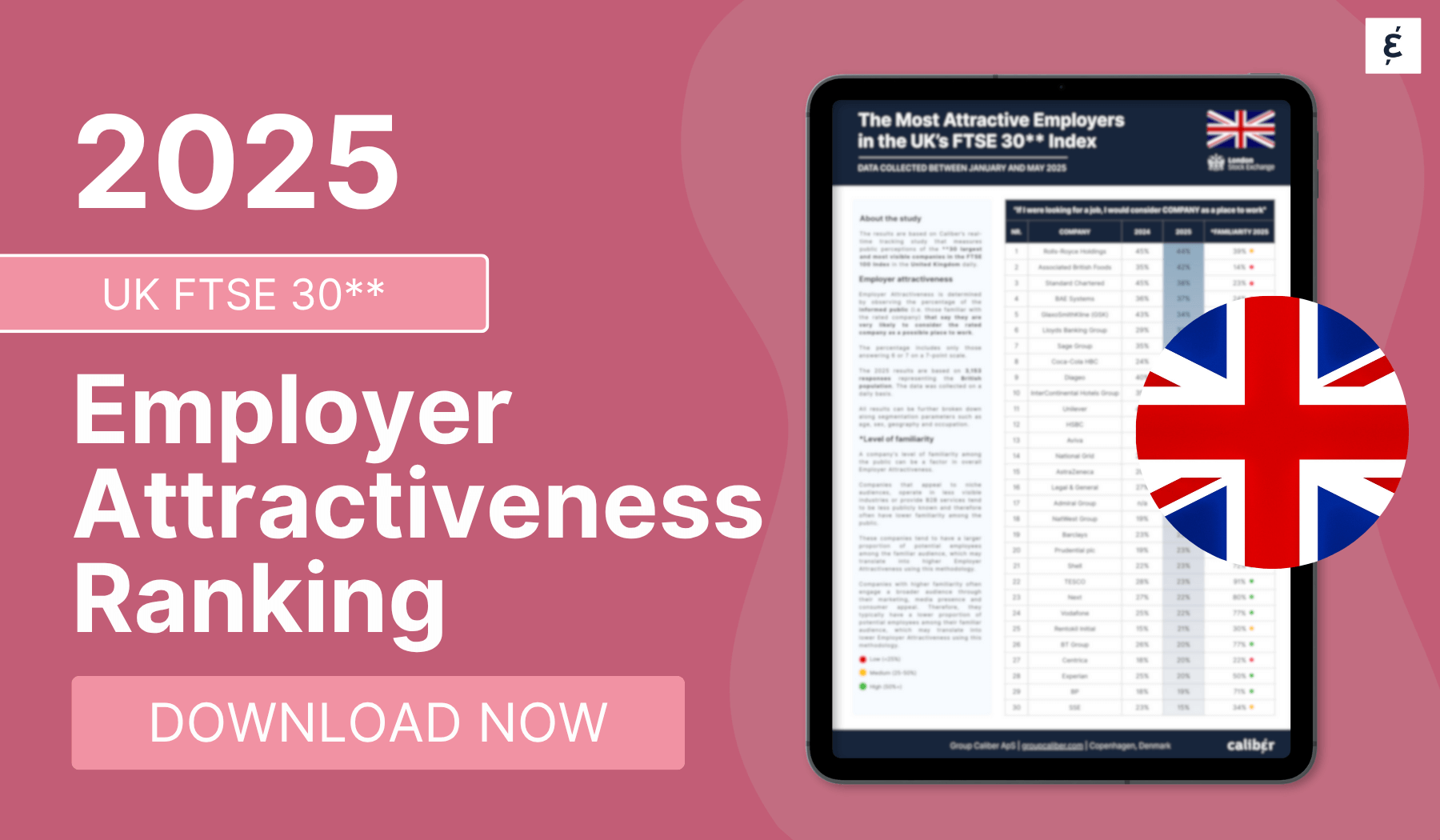

Changing expectations in the workplace are raising the bar for UK companies when it comes to attracting and retaining top talent.
At Caliber, we continuously track the reputation of leading UK FTSE companies. Over the past year, we’ve seen a significant drop in the percentage of people who say they’d like to work for these organizations.
Want to understand how your company can become a more attractive employer? Get in touch to learn how real-time reputation tracking can help.
One of the big challenges for businesses in the UK today is attracting top talent and retaining skilled employees.
Despite rising inflation and a growing concern for the economic outlook, Caliber data shows that less than 8% of job seekers in the UK expect unemployment to be a key issue for society in the next 12 months.
People fear the impact of increasing energy prices to a much larger degree (46%), as well as the overall increased cost of living (54%).
Caliber
In other words, UK employees are confident in their job situations but are also looking for opportunities to ease financial pressures.
A recent talent recruitment report from McKinsey on the “Great Attrition” in the global job market suggests that one-third of all UK employees are considering switching jobs in the next six months.
This presents a real challenge for employers, as competition for qualified candidates will intensify. While a competitive salary remains important, companies must also focus on culture, purpose, and flexibility throughout the hiring process to make a strong first impression on potential candidates. The cause of “Great Attrition” can also be found in changing demands from employers in terms of what to offer employees in addition to a competitive salary.
Our data shows that the previous years (July 2021 to June 2022) have negatively impacted the average Employer Attractiveness — the percentage of job seekers saying they would be interested in working for a company — among the 20 most visible FTSE companies in the UK.
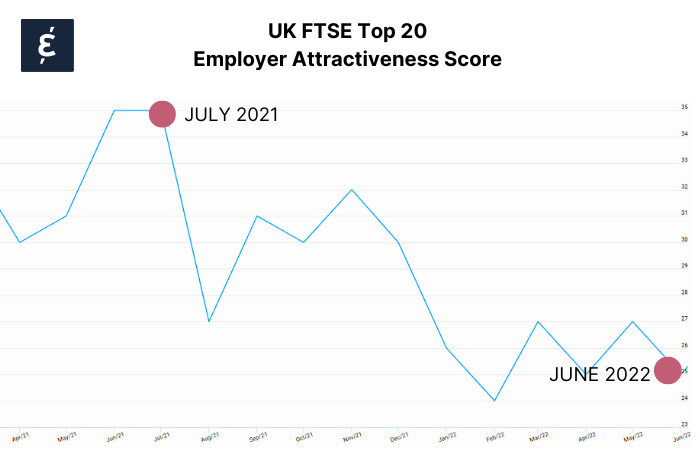
Employer Attractiveness for these companies dropped from 35% to 25% – a significant decline in a short time.
Moreover, the reputation of these companies has fallen at a similar rate, highlighting the strong connection between corporate reputation and the ability to attract qualified candidates through effective job postings and employer branding alone.
Caliber
The biggest declines have been seen in large employers such as Unilever and BT Group both experiencing nearly half as many job seekers saying they’d like to work for them compared to the same time last year.
For BT Group, this decline aligns with workforce tensions over pay raises that failed to match inflationary pressures.
Conversely, Diageo stands out as a game changer in attracting top talent, showing a 20% increase in people’s willingness to work for the company over the past 12 months.
This demonstrates that when a company invests in its reputation and people-first culture, it can still inspire confidence among potential candidates — and make every person feel valued.
Read also: Why should companies track employer attractiveness?
Attracting and retaining top talent goes far beyond simply offering a paycheck.
While it’s still essential to offer competitive compensation, today’s workforce — especially job seekers and good candidates — expects a holistic employee experience that aligns with their career goals, values, and personal wellbeing.
Our research shows that integrity, differentiation, and inspiration are now core pillars of Employer Attractiveness — meaning companies must deliver more than jobs; they must create environments where people can thrive, grow, and feel part of a meaningful mission.
Here are a few suggestions on how forward-thinking organizations may build deeper relationships and strengthen their talent pipeline in 2025:
Fair Pay and Transparency
Companies that are trusted and communicate transparently have a clear edge in attracting top talent.
Caliber’s data consistently shows that trust and transpareny shape how people view an employer — and whether they see it as a place they’d want to work.
When a company is perceived as honest, responsible, and aligned with its values, it not only draws qualified candidates but also keeps them engaged and committed over time.
Are changing worker expectations impacting your reputation as an employer?
Do you know which factors make people want to work for your company — or for your competitors instead?
Caliber’s Real-Time Tracker helps leading UK companies monitor their reputation and employer attractiveness continuously, across stakeholder groups and markets.
Reach out to learn how we can help you strengthen your reputation and attract the talent your business needs to grow.
Attracting top talent means more than offering a competitive salary. Today’s employees want to work for companies that are trusted, purposeful, and transparent. UK employers are expected to show integrity, demonstrate leadership on social issues, and provide meaningful work environments that align with personal values.
A company’s reputation directly shapes how attractive it appears to potential employees. Caliber’s data shows a strong correlation between reputation and willingness to work for a company — when trust declines, employer attractiveness drops too. A strong, credible reputation helps employers stand out in a competitive job market.
The key factors include fair pay, integrity, inspiring leadership, a sense of purpose, and clear communication. Candidates increasingly value how companies handle social and environmental issues, treat employees, and respond to crises — not just the benefits they offer.
Using real-time reputation tracking tools, like Caliber’s Real-Time Tracker, companies can continuously measure how stakeholders — including potential employees — perceive them. This data helps identify strengths and weaknesses in employer branding, so leaders can act quickly to improve perception and attract top talent.
Caliber provides data-driven insights that reveal what stakeholders — including employees and job seekers — think and feel about your company. With real-time tracking of reputation and employer attractiveness, you can understand what drives trust, take corrective action, and build stronger relationships that support long-term talent retention.
You may also be interested in:


